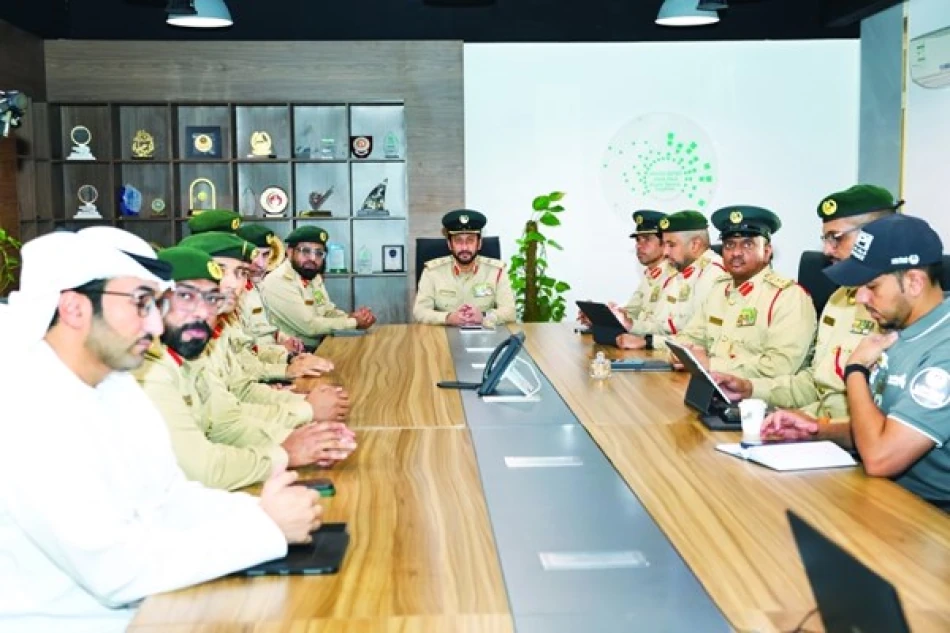
Dubai Police: Human Rights Underpin Core Work Ethos
Dubai Police Elevates Human Rights as Core Pillar of Modern Law Enforcement Strategy
Dubai Police is positioning its Human Rights Department as a strategic cornerstone of integrated policing, reflecting the emirate's broader ambition to establish itself as a global benchmark for rights protection and law enforcement excellence. The move signals a significant shift toward embedding human rights compliance directly into operational police work, rather than treating it as an administrative afterthought.
Strategic Integration Beyond Compliance
Major General Dr. Ahmed Zaal bin Krishan Al Muhairi, Deputy Commander-in-Chief for Financial and Administrative Affairs at Dubai Police, outlined the department's expanded mandate during a recent inspection visit. The Human Rights Department now handles strategic functions including complaint monitoring, inmate welfare oversight, and ensuring compliance with both national legislation and international standards.
This approach differs markedly from traditional police human rights units, which typically focus on reactive complaint handling. Dubai's model integrates rights protection into core police operations, monitoring vulnerable populations including workers, children, women, human trafficking victims, people of determination, and correctional facility inmates.
Digital Transformation in Rights Protection
The department is pursuing digital transformation initiatives designed to accelerate response times and improve service efficiency. This technological integration aligns with Dubai's broader smart city initiatives and represents a forward-thinking approach to human rights administration.
The digitization effort addresses a common challenge in human rights work: the time-sensitive nature of complaints and the need for rapid intervention in cases involving vulnerable populations. By streamlining internal systems, Dubai Police aims to reduce response times while maintaining thorough investigation standards.
Global Positioning and International Partnerships
Dubai's emphasis on establishing "effective partnerships with local, regional, and international institutions" reflects the emirate's strategy of positioning itself as a regional hub for best practices in governance and law enforcement. This approach mirrors successful models in Singapore and Switzerland, where small jurisdictions have gained outsized influence through excellence in specialized areas.
The focus on international partnerships also serves practical purposes, particularly given Dubai's role as a major transit point for global trade and tourism. Strong human rights credentials help maintain the emirate's reputation as a safe, predictable business environment.
Operational Excellence in Vulnerable Population Protection
The department's specific focus on workers, trafficking victims, and correctional facility inmates addresses areas where Dubai has faced international scrutiny. By proactively strengthening oversight in these areas, Dubai Police appears to be getting ahead of potential reputational risks while genuinely improving protection standards.
Worker protection is particularly significant given Dubai's large expatriate workforce and previous international attention to labor conditions. Enhanced monitoring could help prevent issues before they escalate to international headlines.
Anti-trafficking efforts align with Dubai's position as a major transportation hub, where strong enforcement capabilities are essential for maintaining international cooperation and avoiding sanctions or restrictions.
Leadership Investment and Long-term Vision
The high-level attention to human rights operations, including visits from senior police leadership, indicates genuine institutional commitment rather than superficial compliance efforts. Major General Al Muhairi's emphasis on "justice, transparency, and fairness" as core principles suggests this initiative has backing at the highest levels of Dubai's security apparatus.
This investment reflects Dubai's understanding that modern international business and diplomacy increasingly factor human rights performance into partnership decisions. By building genuine capabilities rather than just compliance frameworks, Dubai is positioning itself for long-term success in an evolving global environment where rights protection is becoming a competitive advantage rather than just a regulatory requirement.
Most Viewed News

 Layla Al Mansoori
Layla Al Mansoori






